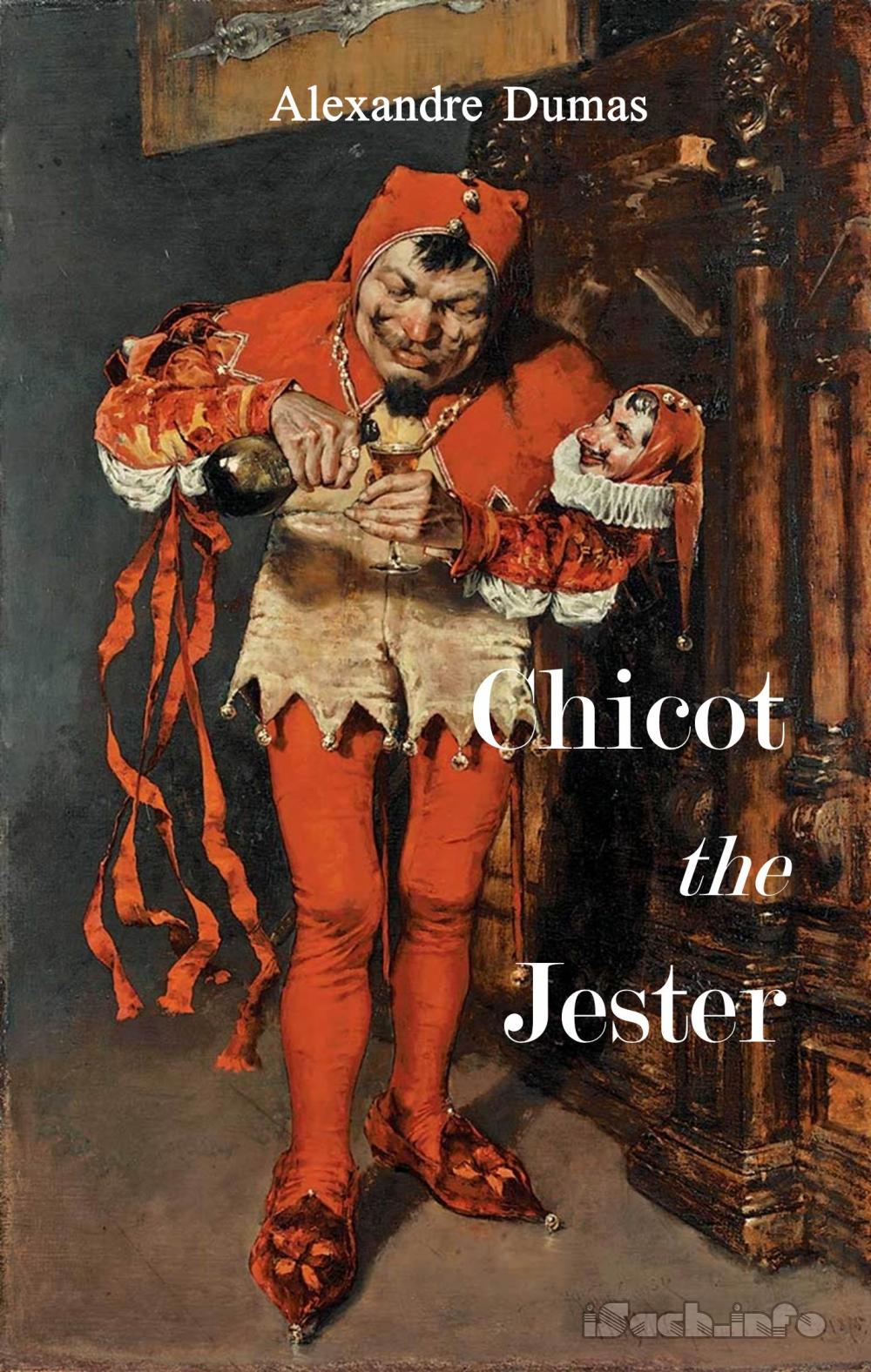Chapter 17: How Henri III Traveled, And How Long It Took Him To Get From Paris To Fontainebleau
T
he sun, which shone four or five hours after the events which we have just recorded had taken place, saw, by his pale light, Henri III. set off for Fontainebleau, where a grand chase was projected. A crowd of gentlemen, mounted on good horses and wrapped in their fur cloaks, then a number of pages, after them lackey, and then Swiss, followed the royal litter. This litter, drawn by eight mules richly caparisoned, was a large machine, about fifteen feet long and eight wide, on four wheels, furnished inside with cushions and curtains of silk brocade. In difficult places they substituted for the mules an indefinite number of oxen.This machine contained Henri III., his doctor, and his chaplain, Chicot, four of the king's favorites, a pair of large dogs, and a basket of little ones, which the king held on his knees, and which was suspended from his neck by a golden chain. From the roof hung a gilded cage containing turtle doves, quite white, with a black ring round their necks. Sometimes the collection was completed by the presence of two or three apes. Thus this litter was commonly termed the Noah's Ark.
Quelus and Maugiron employed themselves with plaiting ribbons, a favorite diversion of that time; and Chicot amused himself by making anagrams on the names of all the courtiers. Just as they passed the Place Maubert, Chicot rushed out of the litter, and went to kneel down before a house of good appearance.
"Oh!" cried the king, "if you kneel, let it be before the crucifix in the middle of the street, and not before the house. What do you mean by it?"
But Chicot, without attending, cried out in a loud voice:
"Mon Dieu! I recognize it, I shall always recognize it—the house where I suffered! I have never prayed for vengeance on M. de Mayenne, author of my martyrdom, nor on Nicholas David, his instrument. No; Chicot is patient, Chicot can wait, although it is now six years that this debt has been running on, and in seven years the interest is doubled. May, then, my patience last another year, so that instead of fifty blows of a stirrup-leather which I received in this house by the orders of this assassin of a Lorraine prince, and which drew a pint of blood, I may owe a hundred blows and two pints of blood! Amen, so be it!"
"Amen!" said the king.
Chicot then returned to the litter, amidst the wondering looks of the spectators.
"Why, Chicot, what does all this mean?" said the king.
"Sire, it means that Chicot is like the fox—that he licks the stones where his blood fell, until against those very stones he crushes the heads of those who spilt it."
"Explain yourself."
"Sire, in that house lived a girl whom Chicot loved, a good and charming creature, and a lady. One evening when he went to see her, a certain prince, who had also fallen in love with her, had him seized and beaten, so that Chicot was forced to jump out of window; and as it was a miracle that he was not killed, each time he passes the house he kneels down and thanks God for his escape."
"You were, then, well beaten, my poor Chicot?"
"Yes, sire, and yet not as much as I wished."
"Why—for your sins?"
"No, for those of M. de Mayenne."
"Oh! I understand; your intention is to render to Cæsar——"
"Not to Cæsar, sire—Cæsar is the great general, the valiant warrior, the eldest brother, who wishes to be king of France. No, you must settle with him; pay your debts, and I will pay mine."
Henri did not like to hear his cousin of Guise spoken of, and this made him serious. It was three o'clock in the afternoon when they arrived at Juvisy and the great hotel of the "Cour de France."
Chicot, looking out of the litter, saw at the door of the hotel several men wrapped in cloaks. In the midst of them was a short, stout person, whose large hat almost covered his face. They went in quickly on seeing the litter, but not before the look of this person had had time to excite Chicot's attention. Therefore he jumped out, and asking a page for his horse, which was being led, let the royal litter go on to Essones, where the king was to sleep, while he remained behind, and, cautiously peeping in through a window, saw the men whom he had noticed sitting inside. He then entered the hotel, went into the opposite room, asked for a bottle of wine, and placed himself so that, although he could not be seen, no one could pass by without his seeing them.
"Ah!" said he to himself, "shall I be forced to make my payment sooner than I expected?"
Soon Chicot found that by keeping the door open he could both see into the room and hear what was said.
"Gentlemen," said the short fat man to his companions, "I think it is time to set out; the last lackey of the cortege is out of sight, and I believe now that the road is safe."
"Perfectly so, monseigneur," replied a voice which made Chicot tremble, and which came from the mouth of a person as tall as the other was short, as pale as he was red, and as obsequious as he was arrogant.
"Ah! M. Nicolas," said Chicot, "tu quoque, that is good. It will be odd if I let you slip this time!"
Then the short man came out, paid the bill, and, followed by the others, took the road to Paris. Chicot followed them at a distance. They entered by the Porte St. Antoine, and entered the Hôtel Guise. Chicot waited outside a full hour, in spite of cold and hunger. At last the door reopened, but, instead of seven cavaliers wrapped in their cloaks, seven monks came out, with their hoods over their faces, and carrying immense rosaries.
"Oh!" said Chicot, "is, then, the Hôtel Guise so embalmed in sanctity that wolves change into lambs only by entering it? This becomes more and more interesting."
And he followed the monks as he had followed the cavaliers, for he believed them to be the same. The monks passed over the bridge of Notre Dame, crossed the city and the petit pont, and went up the Rue St. Geneviève.
"Oh!" said Chicot, as he passed the house where he had kneeled in the morning, "are we returning to Fontainebleau? In that case I have made a round."
However, the monks stopped at the door of the Abbey of St. Geneviève, in the porch of which stood another monk, who examined everyone's hand.
"Why," said Chicot, "it seems that to be admitted to night into the abbey one must have clean hands!"
Then he saw, with astonishment, monks appear from every street leading to the abbey, some alone, some walking in pairs, but all coming to the abbey.
"Ah!" said Chicot, "is there a general chapter at the abbey to-night? I have never seen one, and I should like it much."
The monks entered, showing their hands, or something in them, and passed on.
"I should like to go also," thought Chicot; "but for that I want two things—a monk's robe, for I see no layman here, and then this mysterious thing which they show to the porter, for certainly they show something. Ah, Brother Gorenflot, if you were here!"
The monks continued to arrive, till it seemed as if half Paris had taken the frock.
"There must be something extraordinary to-night," thought Chicot. "I will go and find Gorenflot at the Corne d'Abondance; he will be at supper."



 ePub
ePub A4
A4